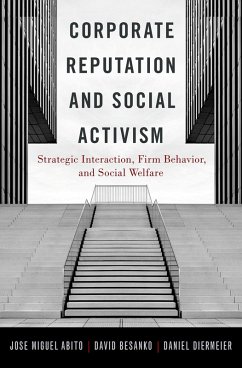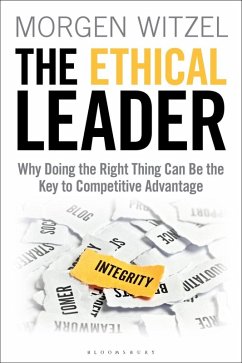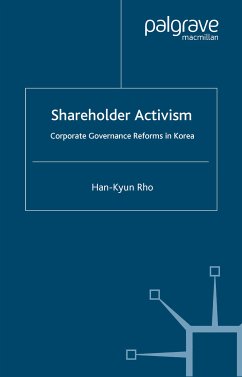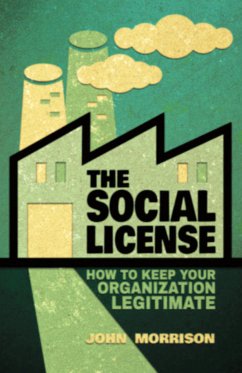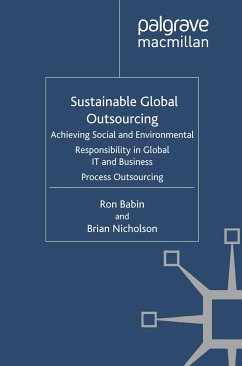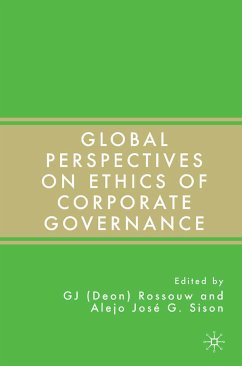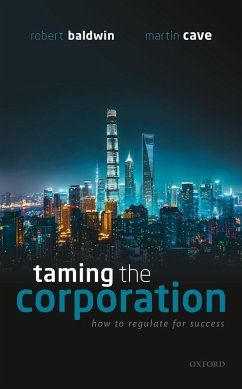
Corporate Reputation and Social Activism (eBook, PDF)
Strategic Interaction, Firm Behavior, and Social Welfare

PAYBACK Punkte
11 °P sammeln!
A firm's reputation is an asset that can be built or harmed over time and most companies invest in their good standing. This can be challenged or threatened by activists seeking to change the firm's behavior, especially to reduce negative externalities and other social harms that a company may be creating. The strategic interaction takes place in the realm of private politics and corporate social responsibility-perceptions and actions of the company, activists, and the public audience-rather than that of public policy, including regulation. In Corporate Reptutation and Social Activism Jose Mig...
A firm's reputation is an asset that can be built or harmed over time and most companies invest in their good standing. This can be challenged or threatened by activists seeking to change the firm's behavior, especially to reduce negative externalities and other social harms that a company may be creating. The strategic interaction takes place in the realm of private politics and corporate social responsibility-perceptions and actions of the company, activists, and the public audience-rather than that of public policy, including regulation. In Corporate Reptutation and Social Activism Jose Miguel Abito, David Besanko, and Daniel Diermeier argue that harm to a firm's reputation is one of the strongest and most practical tools of contemporary corporate activism and explains the numerous campaigns as well as the response of companies. Through a straightforward dynamic model focusing on the interaction of the firm and activists, the authors show how both the firm's existing reputation and various activist tactics influence actions and outcomes of both the firm and the activists. Among their insights are that as a firm's reputation grows, it tends to coast on its reputation by reducing its private regulation, or voluntary adoption of internal rules that constrain certain company behavior. Activists can keep the firm from coasting in two ways: the firm acts more responsibly to protect its reputation in anticipation of activist campaigns, and a firm whose reputation is harmed by a campaign engages more responsibly to repair its reputation. The book explores how activists choose among potential targets and the different tactics activists can use to harm firms' reputations, including criticism, which has a potentially mild impact on the firm's reputation, confrontation, which can cause a reputational crisis in which the firm's reputation can be dramatically impaired, and rewards, which increase a firm's reputation. These can have different effects on firm behavior. The authors also examine whether campaigns by activists advance or harm social welfare. The result is a sweeping overview of an evolving and increasingly important phenomenon that combines rigorous modeling and that generates a rich set of empirical implications that will interest researchers in economics, business and management, sociology, and political science.
Dieser Download kann aus rechtlichen Gründen nur mit Rechnungsadresse in A, B, BG, CY, CZ, D, DK, EW, E, FIN, F, GR, HR, H, IRL, I, LT, L, LR, M, NL, PL, P, R, S, SLO, SK ausgeliefert werden.




